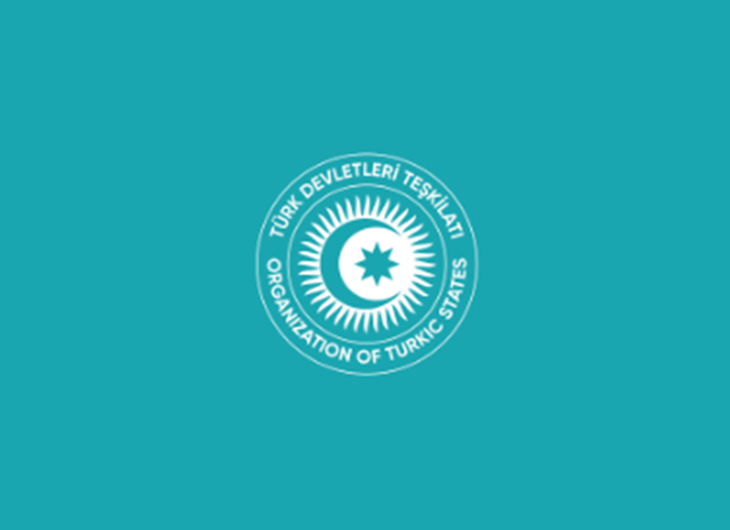Address by H.E. Halil Akinci,
Secretary General of the Cooperation Council of Turkic Speaking States,
to the International Conference on Strengthening Cooperation in Preventing Terrorism, 18 March 2012, Azerbaijan
Mr.Chairman
Honourable Ministers,
Excellences,
Ladies and gentlemen
It is an honour for me to address the International Conference on Strengthening Cooperation in Preventing Terrorism. I would like to thank UNODC and ISESCO for inviting us to the Conference and the Government of Azerbaijan for the warm hospitality offered to us here in Baku.
Today terrorism is in the forefront of challenges and dangers that confront humanity;though it is not a new phenomenon. We find many examples of it in history. However, terrorism as an instrument of achieving political aims reached its peak in the second half of 20th and beginning of 21st century.
The conference will deal with prevention of terrorism. But first we should determine what we are dealing with; what can be considered as terrorism and how to fight it.
However, there is no universally agreed definition for terrorism except that you’ll notice it when it hits you. Simply put it demonstrates itself by indiscriminate disrespect for the most sacred human rights: right to live
Justification for acts of terrorism is always at hand. Usually, there is no inconsistency in their arguments defending their actions.
- It can be presented as a means to achieve self-determination;
- It can be easily justified on ideological and religious grounds;
Terrorist acts justified as such can be and are tolerated by at least segments of different nations and societies and at times helped.
I once, when studying Gandhi as a student came across a poem quoted by an author of one of the several biographies of Gandhi. It said if - I remember correctly - something like that:
- “Point not the goal until you plot the course;
- For different means, different ends impose”
As the poem suggests I think the best way of distinguishing terrorism is by the methods used:
- If a movement or an individual is engaged in indiscriminatory mass murder;
- if it sustains itself by insatiable lust for blood;
- the perpetrators disrespect their own lives and conduct suicide attacks;
They should be considered as terrorist acts and prevented or punished.
There is another type of terrorism which is more difficult to distinguish, accept or to fight against:
State terrorism, the most illustrious examples of which in history are the French and Bolsheviks revolutions, should also be condemned and where possible confronted by joint action.
If one state uses weapons of fear and actual massacre against civilian population, displacing and killing them to achieve its ends, that should also be considered as terrorism. Such terrorism in modern times is not confined to Africa, like Idi Amin’s regime in Uganda, it has also been implemented here in this region resulting in hundreds of thousands of displaced persons and refugees and indiscriminate slaughter. If state terrorism goes unopposed it will encourage other states to use it as an easy way to achieve their justified or unjustified aims.
Terrorism in it wider sense became universal in character. So since it is not confined to national boundaries, fighting against it necessitates comprehensive approach and firm international cooperation.
Double standards must be rejected while combating terrorism. The fight against terrorism requires a comprehensive approach and unwavering international cooperation.
If we are serious about fighting against it selective approach towards terrorism should also end. For it is a boomerang, your respectable terrorist of yesterday serving your political ends might turn against you today, which actually is the case on many occasions.
Terrorism cannot sustain itself without financing. It is an old tree which has poisonous branches on surface and under the ground. For financing its activities it establishes links with transnational organized crime and is involved in activities such as money laundering, arms smuggling, people smuggling, and the production of and trafficking in illicit drugs.
While fighting terrorism, ensuring secure flow of goods and people, creation and reinforcement of border infrastructures and coordination of information sharing and enforcement is more than ever important.
When combating terrorism by equal determination displayed by terrorist themselves we should also engage in joint efforts in eradicating the reasons or the excuses that create and promote terrorism. Despite the fact that states spend billions of dollars on preventing and combating terrorism today the desired effect has not been achieved yet. Overall, use of violence creates even more violence which makes it very difficult to completely eradicate the ideological convictions that serve as a justification for their acts. However, respect for human rights, effective communication among various groups, education, social justice and democratic governance are the key instruments that can be employed to nullify the ideological basis of terrorism. The conference timely and appropriately addresses all of those issues.
Turkic Council has been sensitive to developments in the region and beyond. Commitment of Turkic Council to strengthen cooperation in preventing terrorism is stated in Nakchivan Declaration, the founding document of Turkic Council; where Heads of State “emphasized significance of cooperation and joint action in the fight against terrorism, human trafficking, illicit trafficking of narcotic drugs and psychotropic substances, crime, including illicit arms trade, as well as other threats and challenges endangering international security. They reaffirmed their intention to interact with each other and with international organizations and forums for further strengthening the cooperation in this field”.
Issues of security and combating terrorism in all its forms are central issues for Turkic Council’s Member States. In this regardTurkic Council supports full implementation of UN resolutions adopted on combating terrorism and suppressing its financing.
Thank you.








